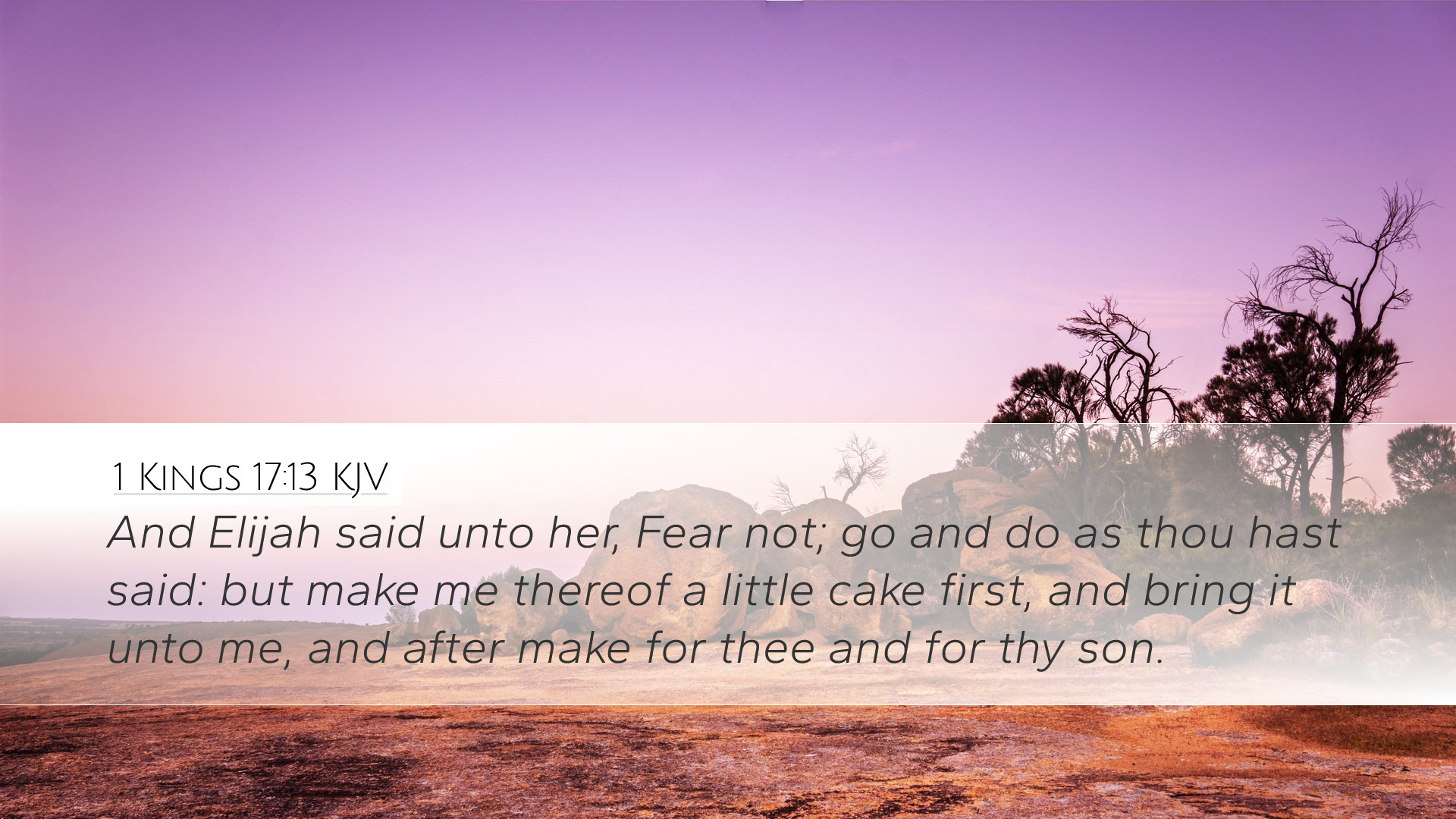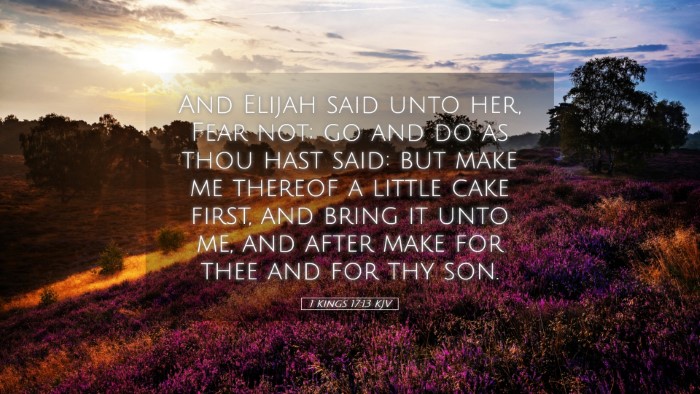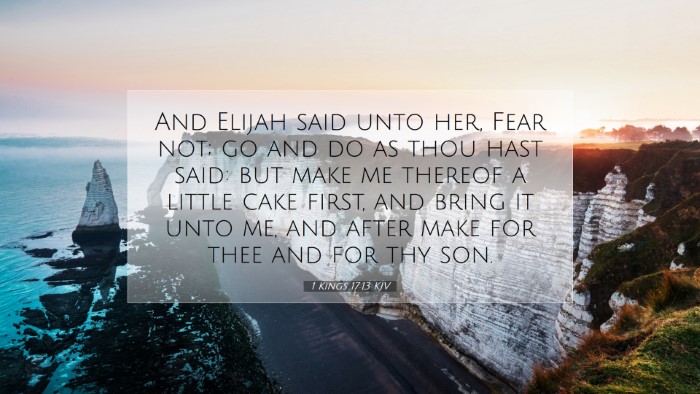Commentary on 1 Kings 17:13
Verse: 1 Kings 17:13 - "And Elijah said unto her, Fear not; go and do as thou hast said: but make me thereof a little cake first, and bring it unto me, and after make for thee and for thy son."
Introduction
This passage presents an extraordinary encounter between the prophet Elijah and the widow of Zarephath during a time of severe drought and famine. It encapsulates themes of faith, provision, and the testing of trust in God. Commentators throughout history have examined this moment with a keen eye, highlighting how it relates to God's character and His promises to His people.
Contextual Background
The backdrop of this scripture is the dire situation in Israel, where Elijah prophesied a drought as divine judgment. The economy has collapsed, and people are facing starvation, which sets the stage for God’s miraculous provision.
The widow, a Gentile, has been chosen by God to demonstrate His grace and provision in seemingly hopeless circumstances. This choice shifts the reader's understanding of God's mercy, emphasizing His reach beyond Israel.
Exegesis and Analysis
1. The Plea for Trust:
Elijah’s command to the widow to first make him a cake before attending to her own needs might seem selfish at first glance, yet it is a profound invitation to trust in God's providence. Matthew Henry states that Elijah's request was “to try her faith” (Henry's Commentary). It forces the widow to confront her desperation and to choose faith over fear.
2. The Response of Fear and Faith:
The first part of Elijah's statement, “Fear not,” serves as an encouragement to the widow. Adam Clarke emphasizes that fear is a natural human reaction in times of scarcity. Yet, the call to move past fear into faith is a recurring motif in the Bible. The widow’s initial response is filled with fear, highlighting her dire situation. However, Elijah's assurance invites her to take a step of faith, which resonates deeply within the framework of biblical narratives regarding divine provision.
Faith in Action
- Acting on Divine Instruction: The widow obeys the prophetic command despite her circumstances. This obedience exemplifies genuine belief—the assurance that what God says will come to pass, as noted by Albert Barnes in his commentary.
- A Test of Priorities: The sequence of requests emphasizes putting God first. This theme permeates scripture and serves to remind believers of the importance of prioritizing their relationship with God amidst scarcity.
Theological Implications
This brief interaction raises significant theological implications regarding God’s provision. It reflects the relationship between divine sovereignty and human agency. The miracle that follows—where the flour and oil do not run out—serves as a powerful testament to God’s sustaining grace. Adam Clarke points out that this event is a fulfillment of the ancient promise that God is committed to “supplying the needs of His servants” even in non-theocratic contexts.
Relationship Dynamics
The interaction can also be examined in light of the relational dynamics between Elijah and the widow. It serves as an illustration of mutual dependency within the community of believers. The widow, while needing help, also plays a crucial role in aiding the prophet. This reflects a broader biblical understanding of community, support, and service to one another in times of need.
Modern Application
For contemporary readers, this passage emerges as a narrative of encouragement amidst trials. It challenges individuals and communities dealing with scarcity—be it physical, emotional, or spiritual—to trust in divine provision. The call to “make me a little cake first” invites believers to consider how they allocate their resources in times of need and to reflect on their priorities regarding their faith and material possessions.
Practical Reflections:
- Trusting God During Crisis: Believers are reminded that God often tests the faith of His people in challenging seasons. His provisions may require stepping out in faith.
- Community Involvement: The widow's interaction with Elijah illustrates the importance of reaching out and supporting one another. Christian communities are encouraged to embody both the needs and divine provisions through mutual care.
- Faith Over Fear: The command “Fear not” resonates today, reminding believers to approach God with trust rather than doubt, especially in precarious circumstances.
Conclusion
1 Kings 17:13 is a rich verse that challenges believers to rise above fear and to trust in God's provision. Through the narrative of the widow of Zarephath, we witness the interplay of faith and divine intervention, inducing profound reflection on our relationship with God and our responsibilities toward one another in the body of Christ. As pastors, students, theologians, and scholars engage with this text, they are invited to explore the depths of trust in divine provision, even amidst uncertainty.


